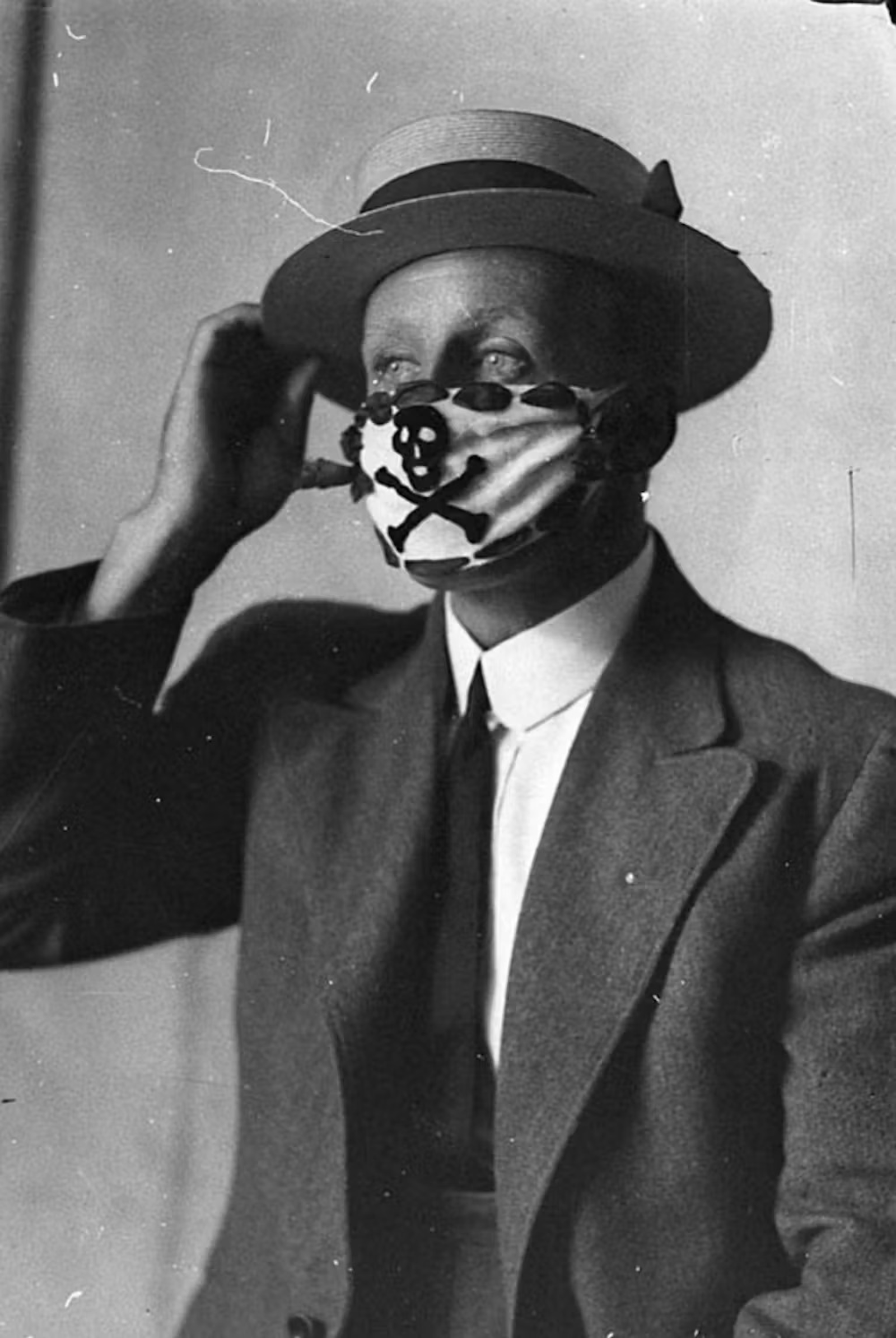In the context of the Telling COVID-19 Stories project, Lydia Edwards’ essay, “Vizards, Face Gloves and Window Hoods – A History of Masks in Western Fashion,” provides a critical historical lens on the role of masks in Western culture, linking the past use of masks to the new significance of masking during the COVID-19 pandemic. Edwards, a fashion historian at Edith Cowen University, explores how masks have evolved from the 16th to the 21st century, serving not only as protective accessories but also as symbols of identity, rebellion, and artistic expression. In light of COVID-19, she examines how the pandemic has redefined masking as both a social necessity and an avenue for creative self-expression. Drawing on Oscar Wilde’s observation that masks often reveal more than they conceal, Edwards connects the symbolic function of masks during the pandemic with their earlier cultural roles. She also draws poignant parallels between COVID-19 and the Spanish Flu, suggesting that the creative reinterpretation of mask-wearing can transform a restrictive safety measure into a form of artistic expression, aligning with our project’s focus on the cultural dimensions of the pandemic experience. Ultimately, she suggests that the perceived negativity of pandemic masking can be reimagined through creative approaches, aligning with the Telling COVID-19 Stories project’s exploration of the pandemic’s transformative impact on culture and expression.

Image Captions:
The skulls and cross bones embellishment was a joke, rather than standard issue in 1919, during the Spanish Flu. Photograph State Library and South Wales, via “Vizards, Face Gloves and Window Hoods.” The Conversation, 20 August 2020.Citation: Edwards, Lydia. “Vizards, Face Gloves and Window Hoods – A History of Masks in Western Fashion.” The Conversation, 20 August 2020, bit.ly/3Ow3pGk. NON-FICTION, ESSAY, AUGUST 2020 | AUSTRALIA. ms/jb/ig
Source Type: Online Blog posts
Country: Australia
Date: 01-Aug-2020
Keywords: Aesthetics, Fashion, Identity, Masks, and Spanish Flu